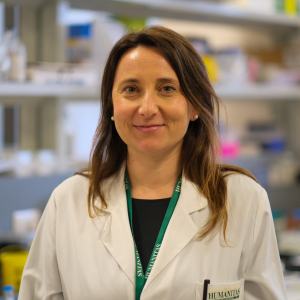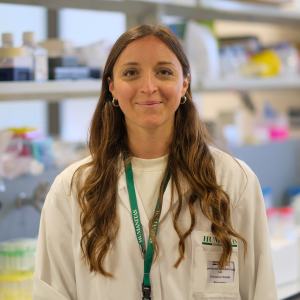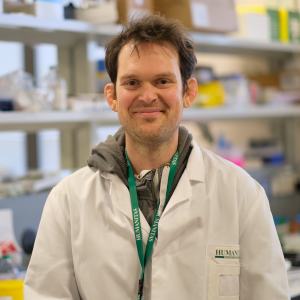Research Group
Absinta Group
Experimental Neuropathology Lab
Our lab aims at decoding the molecular mechanisms underlying glia-mediated chronic inflammation observed in neuroinflammatory and neurodegenerative diseases of the central nervous system and at fostering its resolution
The challenge
Dysregulated glia-mediated neuroinflammatory processes have been implicated in most neurodegenerative diseases, including multiple sclerosis, Alzheimer’s disease, and Parkinson’s disease. There is growing interest in treating these conditions with CNS-penetrating immunotherapies. Our working hypothesis is that the way the brain responds to insults is equally relevant to long-term outcomes as the insult itself.
A prototypical example of dysregulated glia-mediated neuroinflammation is multiple sclerosis, the most common chronic inflammatory, demyelinating, and neurodegenerative disease of the central nervous system, affecting individuals from young adulthood. While existing disease-modifying treatments effectively control peripheral immune responses and mitigate the relapse-associated inflammatory activity, they demonstrate limited efficacy in halting disease progression that occurs independently of relapses. Preventing or treating clinical progression is a major unmet need in multiple sclerosis. Growing evidence supports the role of compartmentalized inflammation within the leptomeninges and within the parenchyma, as occurring in chronic active lesions, in clinical progression. The recent possibility to image in vivo chronic active lesions in the brain (as paramagnetic rim lesions using susceptibility-based MRI) led to the recent discovery of their important role in driving early disability accrual and potentially progression.
Main Research Areas
Decoding glia-mediated chronic inflammation
Using advanced neuropathological multi-omic techniques, combining single-cell transcriptomics, spatial transcriptomics, multiplex immunostaining, and metabolomics of human autopsy brain and spinal cord tissues.
Cellular modeling of the glia interactome
Using human-induced pluripotent stem cell (hiPSC) glia-enriched neural organoids to investigate human neuron-glia-microglia functional crosstalk and to identify and test relevant, druggable molecular mechanisms of chronic inflammation.
Translational platform using in vivo MRI and fluid biomarkers
Validate the discovered key mechanisms of glia-mediated chronic inflammation in individuals with neurological diseases and to design novel proof-of-concept, biomarker-based clinical trials.
Selected publications
Novel human iPSC models of neuroinflammation in neurodegenerative disease and regenerative medicine.
A glia-enriched stem cell 3D model of the human brain mimics the glial-immune neurodegenerative phenotypes of multiple sclerosis.
B cell depletion therapy does not resolve chronic active multiple sclerosis lesions.
A lymphocyte-microglia-astrocyte axis in chronic active multiple sclerosis.
Chronic White Matter Inflammation and Serum Neurofilament Levels in Multiple Sclerosis.
Paramagnetic Rim Lesions are Specific to Multiple Sclerosis: An International Multicenter 3T MRI Study.
Association of Chronic Active Multiple Sclerosis Lesions With Disability In Vivo.
Human and nonhuman primate meninges harbor lymphatic vessels that can be visualized noninvasively by MRI.
Persistent 7-tesla phase rim predicts poor outcome in new multiple sclerosis patient lesions.
Advanced MRI and staging of multiple sclerosis lesions.
Gadolinium-based MRI characterization of leptomeningeal inflammation in multiple sclerosis.
Seven-tesla phase imaging of acute multiple sclerosis lesions: a new window into the inflammatory process.
Group members


